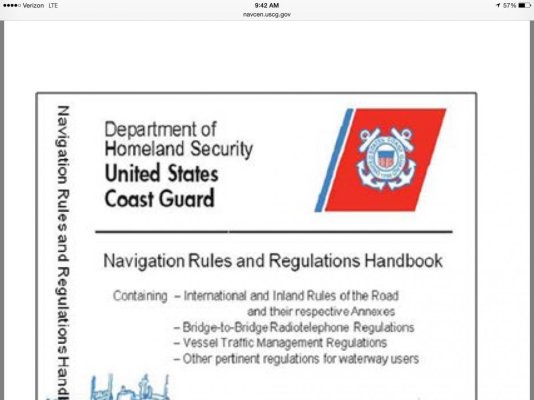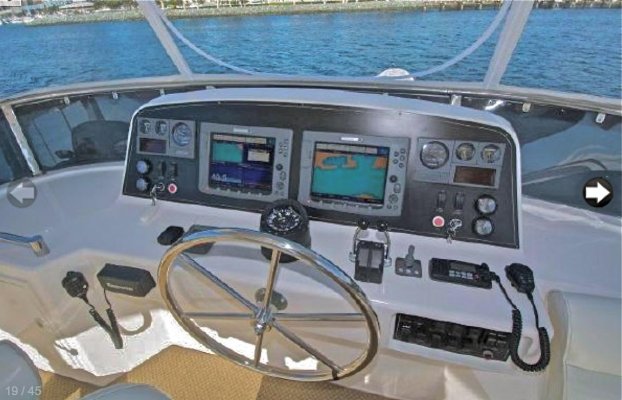Gulf Comanche
Guru
- Joined
- Dec 16, 2007
- Messages
- 1,045
- Location
- U.S.A.
- Vessel Name
- Old School
- Vessel Make
- 38' Trawler custom built by Hike Metal Products
I saw this in Soundings yesterday:
Soundings Online Mobile - Soundings Dispatches
It got me to thinking, if you're traveling to or passing through waters never travelled before, how would you handle safely navigating to your planned next stop if all electrical equipment went out? I'm used to just following a pre-planned route on Coastal Explorer, but what if its no longer available? I also carry paper charts and could probably muddle my way through. One of the reasons I bring this up is our recent trip from the slip to Bay St. Louis, MS. Lake Ponchartrain was no problem, but past there was new territory. Getting to the Gulf ICW from past the Interstate 10 bridge was interesting, skinny water in a narrow channel, then into the Rigolets which is deep but with channel markers few and far between.
Just thinking about it makes me want to take an in depth navigation class.
Soundings Online Mobile - Soundings Dispatches
It got me to thinking, if you're traveling to or passing through waters never travelled before, how would you handle safely navigating to your planned next stop if all electrical equipment went out? I'm used to just following a pre-planned route on Coastal Explorer, but what if its no longer available? I also carry paper charts and could probably muddle my way through. One of the reasons I bring this up is our recent trip from the slip to Bay St. Louis, MS. Lake Ponchartrain was no problem, but past there was new territory. Getting to the Gulf ICW from past the Interstate 10 bridge was interesting, skinny water in a narrow channel, then into the Rigolets which is deep but with channel markers few and far between.
Just thinking about it makes me want to take an in depth navigation class.




